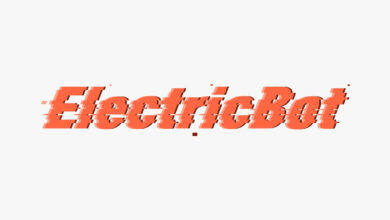Most Asked AEM Interview Questions and Answers for 2024

AEM stands for Adobe Experience Manager, a comprehensive content management solution. It is used to build forms, websites, and mobile apps. It is used to manage assets and keep track of marketing content.
In this growing world of digital marketing, AEM jobs are becoming increasingly common and sought after. If you are looking for a job in this field, these AEM interview questions and answers will help you prepare well.
Top AEM Interview Questions and Answers for 2024
1. What is AEM?
AEM, or the Adobe Experience Manager, is a comprehensive content management tool. It efficiently builds and manages websites, forms, and mobile apps. The AEM is a part of the Adobe Marketing Cloud.
2. Why is AEM preferred over CMS?
AEM’s biggest benefit is its ability to help users build a customized digital experience. Users also enjoy it due to the following features that it offers:
- Digital assets management
- Workflows
- Social media and multi-channel collaborations
3. Discuss Sitecore CMS.
Sitecore is a famous content management system built on ASP.NET. Sitecore CMS helps editors and content managers keep complete control of their websites. This includes e-commerce, social integration, and blog posts. It is a revered digital marketing tool.
4. What is the difference between AEM and Sitecore?
AEM and Sitecore have several similarities and differences. Both AEM and Sitecore are highly cost-effective, highly complex, easy to access, and support multiple user access. A good CMS’s features are available on both Sitecore and AEM.
Sitecore is based mainly on the .NET programming language and AEM on the OSGi-based Apache Sling. But, where Sitecore is highly customizable, AEM is only moderately customizable. AEM supports a single platform, and Sitecore does not.
5. What is AEM testing?
AEM provides a Bobcat testing framework. This framework is used for automated tests on the AEM UI. The framework allows the user to write and run UI tests directly on the web browser. The framework provides a Javascript API for generating tests.
6. What is the use of the AEM dispatcher?
The load balancing or caching tool used to protect the AEM server from attacks is known as a dispatcher. This is needed as the AEM server uses cached pages. The dispatcher mainly looks into caching as many pages as possible so that it does not access the layout engine.
7. What is the AEM architecture?
AEM architecture is part of the team that deals with the Adobe Experience Manager Implementation.
8. Differentiate between package and bundle?
A zip file containing content in the form of a file system specialization or vault specialization is a package. It is easy to use and edit and displays content from a repository.
A loadable collection of jars, classes, and configuration files that mainly declare their external dependency is known as a bundle.
9. What are the main features of AEM?
The following are the main features of AEM:
- AEM helps navigate different templates, pages, and elements on the web browser very easily.
- The latest AEM features help create greater content development and social media marketing.
- The unified user interface provided by AEM helps in better personalization.
- Helps in the easy launch of online campaigns for international brands.
10. What is the difference between a regular dialog and a design dialog?
A group of widgets used to receive input from the author is known as dialogs and design dialogs. These help the author communicate with the CQ5 component. But there are a few distinctions between the two.
- The dialog changes the content at the page level, and the design dialog changes the content at the template level.
- The availability of the author is in the edit mode in a dialog. Whereas in the design dialog the author is in the design mode.
- The dialog access values in CQ5 JSPs through the properties object and the design dialog through the currectStyles object.
11. Explain Sightly in the context of AEM.
The HTML templating language, introduced in AEM 6.0, is known as Sightly. Sightly was introduced to replace the JPS files. It is an approved templating system for HTML.
12. Mention a few advantages of AEM CQ5.
The following are some well-known advantages of AEM CQ5 over regular CMS:
- One of the biggest advantages of AEM CQ5 is that it is integrated with other Adobe products and the Adobe Marketing Cloud.
- AEM can create a personalized digital user experience.
- AEM provides features such as digital asset management, multi-channel collaborations, and content workflows.
- AEM also helps manage mobile applications, mobile websites, and mobile e-commerce.
13. What is extending a component?
The reusable model used to create logic to add to the website content is known as a component. The extending component is the process of creating a new component that both has the same features as the base component and at the same time does not override it.
14. In the content of AEM, what do you mean by a template?
When users need to implement a uniform style for their application, they use the AEM template. In AEM, static or editable templates are used to build a new page and generate a content fragment.
15. What is a content repository?
The place where the digital content is stored is known as the content repository. The content repository is represented as a tree or hierarchical structure. In this structure, each node of the tree is utilized to store content.
16. Explain the Adobe Marketing Cloud.
AMC or the Adobe Marketing Cloud is well known in the digital marketing world. It is an Adobe product that has all the latest features required for marketing functionalities. The AMC is an excellent place to optimize and analyze content and websites.
FAQs
1. What are the skills required for AEM?
The following skills are needed for AEM:
- CSS, javaScript
- AJAX, jQuery
- OSGi
- CMS Development Experience
- Web Services Creation and Consumption
2. Is AEM easy to use?
Yes, AEM is fairly easy to use. The user can build websites and applications using this to promote their brand. It has easy-to-use CMS features. It is also compatible with other Adobe products.
3. Which language is used in AEM?
AEM uses HTL or the HTML Template Language.
4. What is the future of AEM?
The demand for AEM is all set to rise. The many benefits of the service, including its Adobe compatibility and CMS features, make it a great addition to the online practices of brands and companies. AEM will see a rise in the next decade.
If you’re eager to gain the skills required to work in a challenging, rewarding, and dynamic IT role – we’ve got your back! Discover the endless opportunities through this innovative Post Graduate Program in Full Stack Web Development course designed by our partners at Caltech CTME. Enroll today!
Conclusion
Preparing for an interview with Adobe Experience Manager (AEM) can be difficult due to the platform’s comprehensive nature, which includes content management, digital asset management, and personalization features. To effectively respond to AEM interview questions, you must understand its functionalities and how they relate to user experience (UX) design principles. Attending UX Design Bootcamps can be a strategic step in this preparation.
The Adobe Experience Manager or AEM field has become well known among many marketing and IT enthusiasts. If you are also looking to make a name for yourself in this field, then these AEM interview questions can be very helpful in your job interview.
You can also check out the Post Graduate Program in Full Stack Web Development from Simplilearn to help upskill yourself. This program will provide additional knowledge and give your resume the much-needed zing!
Feel free to add your questions and queries in the comments section below. Our team will get back to you with the solutions at the earliest.



